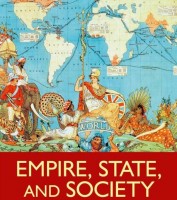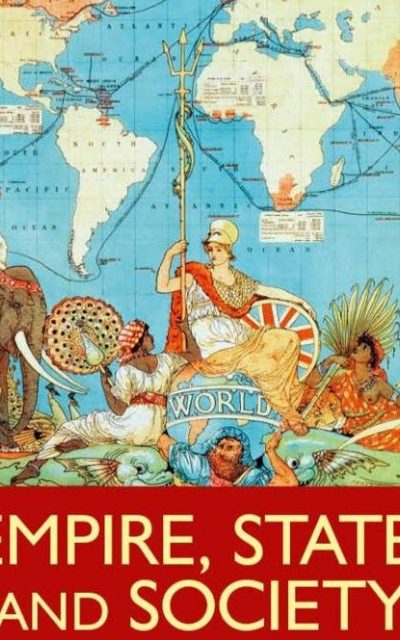Authors: Jamie Bronstein and Andrew Harris
Publisher: Wiley-Blackwell
Book Review by: Paiso Jamakar
 This is a book not only on the history of modern Great Britain’s a century before and the years since 1830, but also a sweeping overview of that country’s expansive (and later, contracting) international empire; the changing nature of its political institutions over the decades at home and abroad; its influence over world events; its changing economics; its political and intellectual ideas and its culture; and much more.
This is a book not only on the history of modern Great Britain’s a century before and the years since 1830, but also a sweeping overview of that country’s expansive (and later, contracting) international empire; the changing nature of its political institutions over the decades at home and abroad; its influence over world events; its changing economics; its political and intellectual ideas and its culture; and much more.
The year 1830 is not in any particular way significant in British history. The authors write that “this frees the book from having to begin with the beginning of an actual event, which is just as conceptually challenging as beginning in the middle.”
Those familiar with British history know that some close-by events were the Napoleonic Wars that ended in 1815; the first Great Reform Act was passed in 1832 and Queen Victoria began her reign in 1837.
Its 16 chapters cover Great Britain’s main historical periods, particularly:
- Its Georgian era from 1714 to 1830.
- Its politics, economic and social change, including suffrage, intellectual and cultural developments from 1830 to 1867.
- The decline of aristocracy in Britain, the rise of democracy, empire-building, economic and social change from 1867 to 1910.
- Nationalism and Depression, from 1919 to 1939.
- London Burning: Britain and World War II.
- The winds of political and economic transformation, including building a Welfare State; the Beatles; and cultural and intellectual developments, from 1945 to 1979.
- British politics and economics from 1979 to 2007.
The book is illustrated with numerous maps, sketches, photos, posters and other images that help tell the story of Britain.
The authors present a compelling story of how Britain built its empire and increased its influence in the world, pointing out that it was the world’s recognized superpower which had a vast overseas network of trade and investment and a “formidable” military organization.
They also write that all this was rivaled only by the British people’s opinion of themselves in the nineteenth century as being the first in the world in industry, first in culture and first in democratic institutions.
The authors have organized their work into historical periods, with overviews of the society, politics, economics, intellectual beliefs and culture prevailing in each period. This makes for easier absorption of material presented.
Among other events that affected British life, the authors discuss important acts of the British Parliament. They also discuss the relationship between Britain and its colonies, political culture, and the changing nature and institutions of local government.
In this book, the authors write about each period in terms of social and economic changes and how they affected different classes of people and family life, work and leisure time.
They also explore the intellectual and cultural reactions to and sensibilities within each period, such as how did the British think about and understand the path they took through Utilitarianism, Evangelicism, science, religion and socialism. They also touch upon Fabianism and decolonization.







